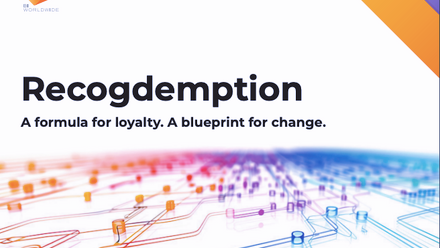How a culture of employee self-care can create a sustainably healthy workforce

Worker wellbeing may be a top priority for businesses, but wellbeing programmes and benefits are often geared towards remedial care rather than preventative action.
As we have come to know, consistent lack of self-care can fuel heightened stress levels, unhealthy lifestyles and employee burnout, which, cumulatively, have a profound effect on worker wellbeing, job performance, morale and retention.
In order to make a meaningful difference, businesses need to ensure self-care becomes an integral part of the working culture, supported by wellbeing programmes that promote balance and encourage healthy behaviours.
Creating a self-care culture
All too often, overworking is something that is lauded, seen as a sign of dedication, commitment and loyalty. This way of working can easily creep into standard working practices and become the ‘norm’. But it does not have longevity.
In order to create a sustainably healthy workforce, there needs to be a level of balance and opportunity for replenishment.
There are a number of simple steps businesses can take to kick-start this journey to self-care.
Breaks, for example, are important for restorative purposes but are often overlooked. According to our latest Barometer research, almost two thirds (64 per cent) of non-smokers and non-vapers do not take regular breaks at work.
This is despite more than half believing it would improve their health and wellbeing and their productivity levels if they did so.
One in two (48 per cent) employees who didn’t take regular break said they were too busy, 16 per cent said they forget to, 13 per cent said they worry about being judged by management, and the same percentage said there were no suitable spaces to take a break.
Employers should encourage workers to take regular breaks, away from their desk, and look at providing a dedicated space where workers can recharge, away from the distractions of their working tasks.
Highlighting the importance of taking breaks for mental wellbeing will help underline the company’s commitment to their employees’ emotional wellbeing and allay employees’ fears of being judged.
Ensuring work goals are realistic, encouraging staff to work regular hours and take regular leave, and keeping work correspondence within working hours, will also help reinforce this message of self-care and balance.
Through regular messaging and managerial role models, self-care will eventually become woven into the fabric of the organisation.
Helping employees look after their own health
From social running clubs to clean living trends, we have become more health-conscious as a society in recent years.
This movement has been fuelled, in large part, by the advances in, and accessibility of, technology.
In fact, one in two (50 per cent) employees now use technology to manage their health, according to our Global Attitudes to Benefits Study (GBAS).
The study found:
- 35 per cent of employees use technology to monitor their activity, such as sleep and fitness;
- 26 per cent monitor their diet;
- 22 per cent use social media and online forums on health issues;
- 17 per cent monitor a health condition;
- and 16 per cent use online tools for medical consultations, such as telemedicine.
By leveraging certain technologies, companies can help address the health risks of their employee population and promote a preventative, self-care approach.
Take, for example, stress, which is the most prevalent issue for today’s businesses. Our GBAS research has shown that there is a clear relationship between stress and unhealthy lifestyle choices.
The study found that 61 per cent of employees with high levels of stress are likely to eat unhealthily, exercise infrequently, smoke and suffer a lack of sleep. This compares with just 34 per cent of those with low level stress.
Technology can help by equipping employees with the tools to break cycles and form healthy habits.
Offering access to technology aimed at improving emotional wellbeing, such as meditative apps, text-based counselling, AI chatbots, and yoga tutorials, can help with resilience and reduce stress levels.
Couple this with subsidised wearable and monitoring technology that looks at improving lifestyle, such as sleep monitoring apps, fitness trackers, and online nutritional diaries, and you have a two-pronged approach to improving overall health and wellbeing – and consistently promoting self-care.
This technology can give the user personalised insights, which provide motivation in itself, or for those employees who are harder to reach, incentives, such as chance to have extra time off work, may help them engage.
But this will all depend on the level of employer intervention employees are comfortable with. For some, health and wellbeing will always be a personal pursuit, which employers should support by giving them the tools to proactively manage their health, at their own convenience.
For those that do need the extra boost, and volunteer their data for participation in league tables and incentive schemes, employers should make clear exactly how their data is stored and the measures taken to keep it secure.
The author is Mike Blake, wellbeing lead at Willis Towers Watson.
This article is provided by Willis Towers Watson.
Supplied by REBA Associate Member, WTW
WTW is a leading global advisory, broking and solutions company.







